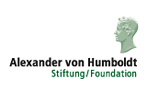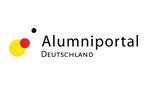An efficient research evaluation system is an important element of a well-performing National Innovation System (NIS). To initiate this development, Vietnam has established the Vietnam Science and Technology Evaluation Center (VISTEC) in 2006. The project “Capacity Building for Research Evaluation in Vietnam” (EvaCap intends to stimulate and support the development of a modern and effective research evaluation system in Vietnam. EvaCap is funded by the German Federal Ministry of Education and Research (BMBF) and aims at developing Vietnam’s and in particular VISTEC’s research evaluation capacities with support from the German Institute for Research Information and Quality Assurance (iFQ) and the Fraunhofer Institute for Production Systems and Design Technology (IPK).
iFQ’s contribution to the project is twofold: Firstly, a concept for an evaluation summer school will be developed in close cooperation with VISTEC and a first pilot training event will be organized and held in Vietnam in autumn 2012. The pilot training event aims at the dissemination of state-of-the-art research evaluation knowledge to the interested community in Vietnam. Secondly, further knowledge transfer will be organized by actively involving VISTEC staff members in the research project – ProFile – running at iFQ. ProFile examines career paths and patterns of early career researchers and factors influencing their careers, highly relevant issues also for the Vietnamese NIS. Involving VISTEC staff aims at sustainable knowledge transfer and VISTEC capacity building through practical application (“learning by doing”). It will provide transfer of state-of-the-art methodological and application know how in modern evaluation techniques for future application by VISTEC. Not only will the VISTEC staff members be involved in carrying out a research project but the objective is to develop a respective project specifically targeted on the Vietnamese situation. Thus, within the framework of the study a qualitative pre-study focused on Vietnamese PhD students in Germany will be carried out in order to identify motives and expectations of young Vietnamese researchers with regard to their career. Specific attention will be paid to expectations to spend parts of their career abroad. The information gathered will be used in order to adapt the ProFile instrument to the Vietnamese context. We will cooperate with a range of external partners like DAAD, Alumni Portal Deutschland and the Humboldt Foundation in the pilot study. Furthermore, results will be compared with iFQ’s doctoral candidates study “ProFile” to gain a better understanding of how to optimize the leverage achievable for Vietnam’s science and technology system.




